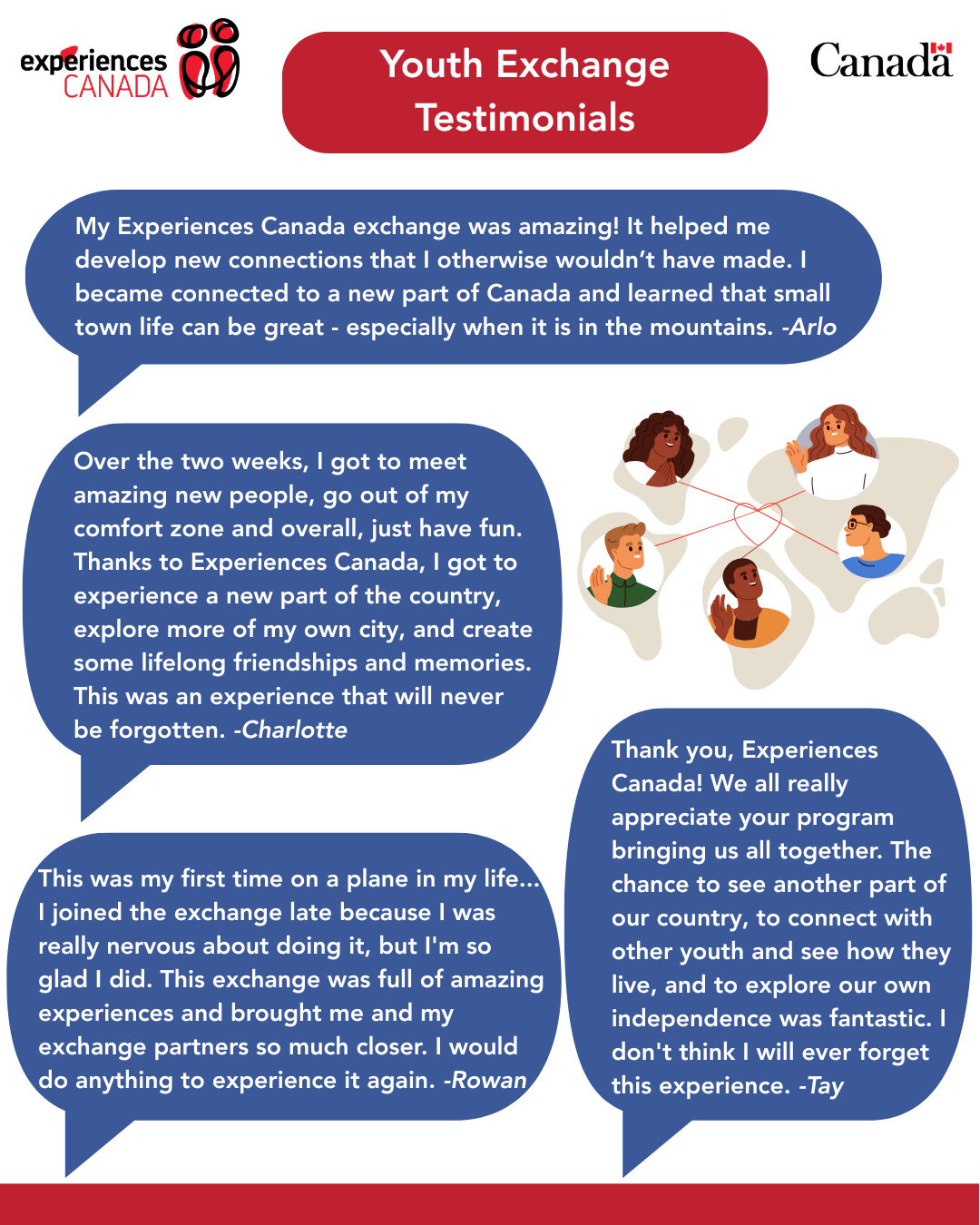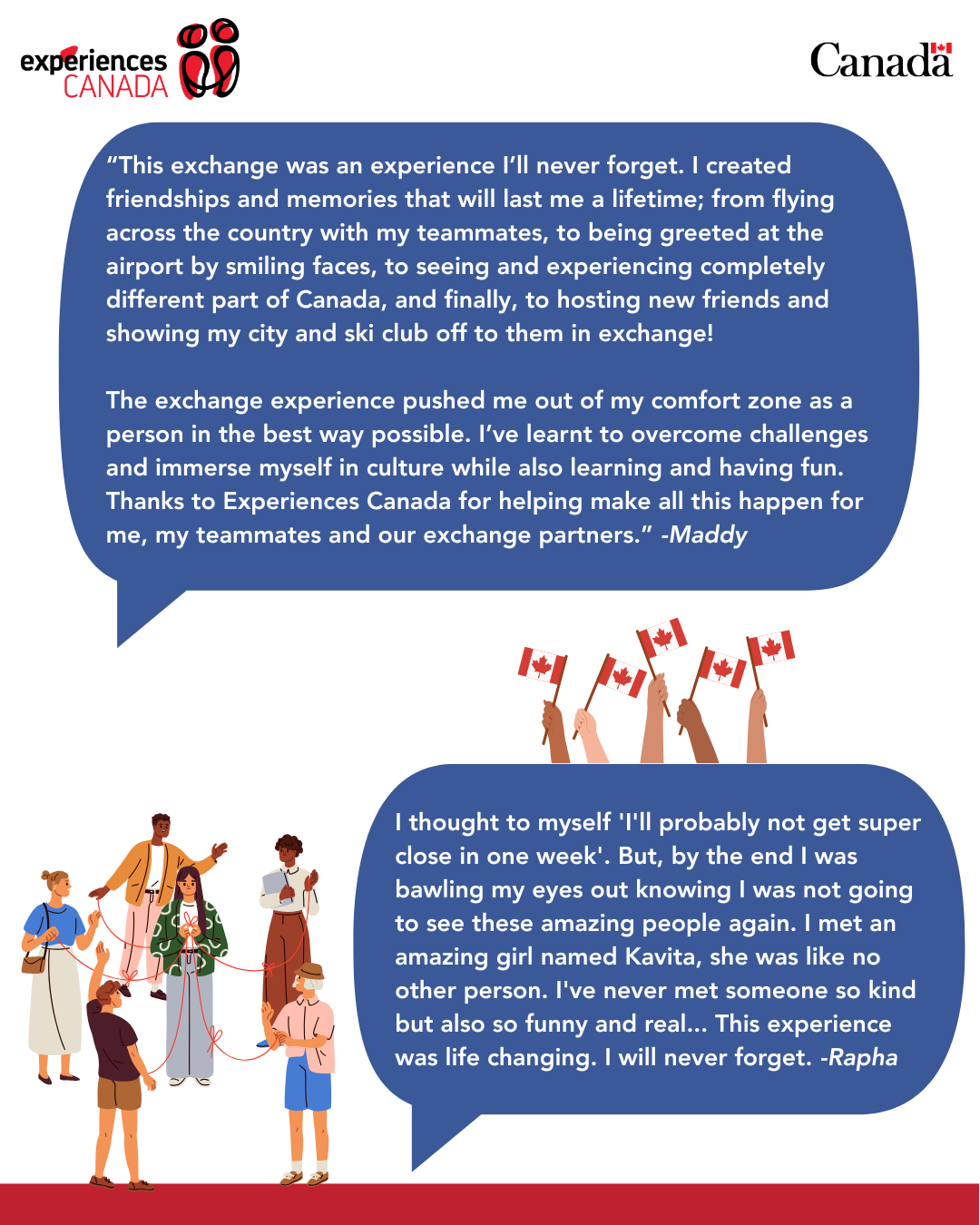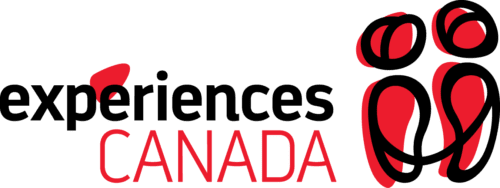Youth Exchanges
Apply today to secure funding for a 2025 Youth Exchange!
For 89 years, Experiences Canada has been offering youth opportunities to explore Canada in ways they never imagined. Reciprocal Youth Exchanges offer life-changing experiences: enabling young Canadians to build personal skills and self-confidence; form new friendships; deepen their knowledge of a second language, of other histories and cultures, and inspire them to become more actively engaged in their communities.
- Open to groups of 10-60 youth aged 12-17 and their chaperones to travel anywhere in Canada
- We find you a compatible group or you can suggest your own
- Exchanges are typically 7 to 10 days for each group (including 2 days travel time)
- Various themes available including language, sports, music, history
- Group travel costs are covered
- Limited additional funding is available to support youth with special needs or to reduce barriers to participation (see FAQ)
Dates & Deadlines
Please note: Group Organizers must apply for an exchange a minimum of 60 days before your desired travel date.
June 30 – application deadline for travel before December 1
October 31 – application deadline for travel before April 30
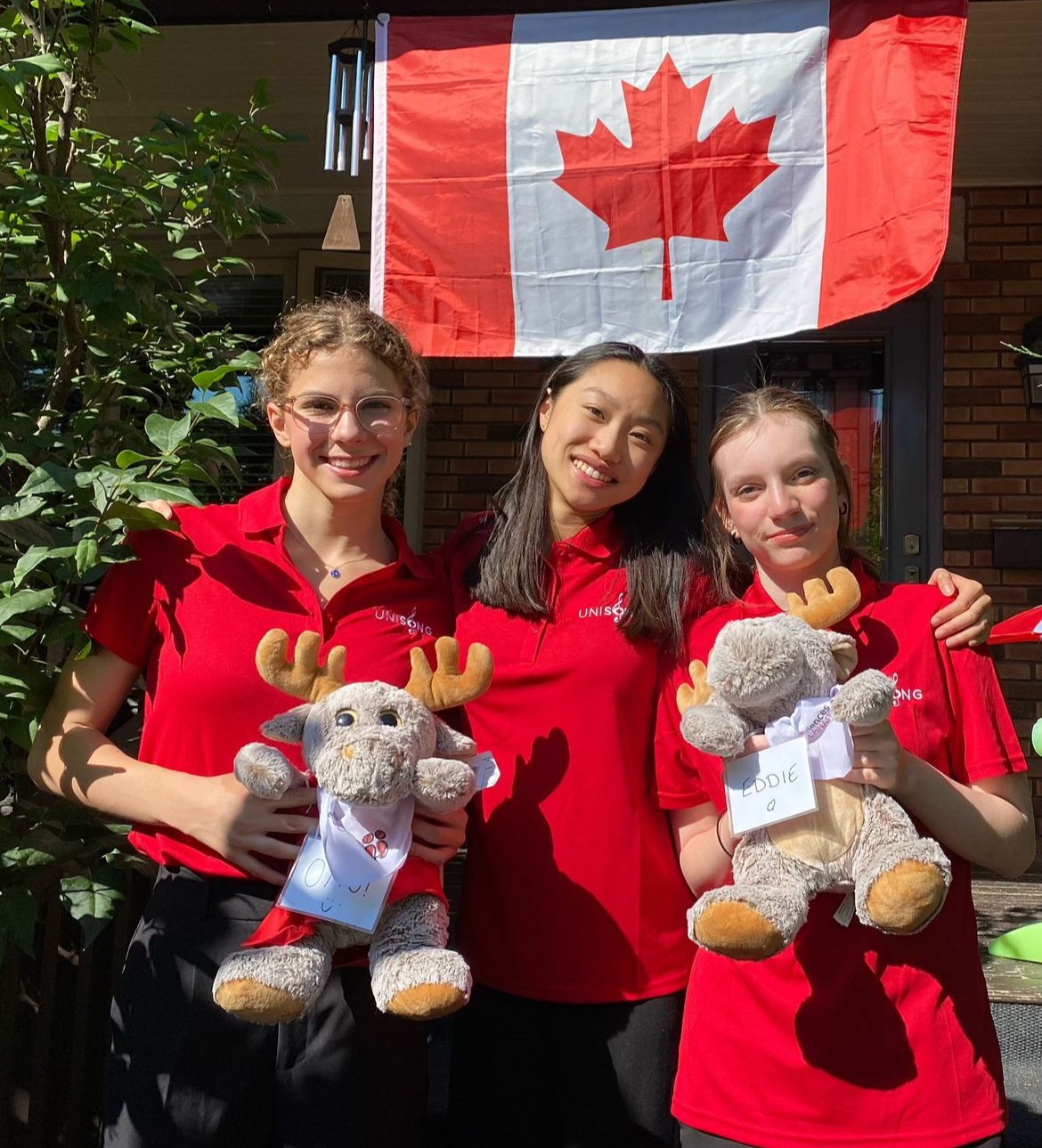
What we finance – Free transportation
- Roundtrip Transportation is free from your community to your twin group!
- Air, bus and train transportation costs are generously funded by the Department of Canadian Heritage.
- Transportation to and from the airport is also covered.
- Limited additional funding is available for special measures to support youth with special needs or to reduce barriers to participation, such as:
-
- Expenses related to the support of special care attendants and interpreters.
- Young people from low-income families
- Youth in rural, isolated or marginalized areas.
- Other requests approved on a case-by-case basis.
- *Special measures funding cannot be used to support registration or membership fees.
-
Additional costs:
- A membership fee of $250 per group is payable upon application.
- A registration fee of $250 per person is required after the group has accepted the funding.
- Groups are responsible for hosting-related expenses such as local transportation, supply teachers and activity costs while hosting the twin group or as agreed upon between the two organizers.
TYPES OF EXCHANGES

SPORTS EXCHANGE
SUMMARY
Experiences Canada funds travel for sport teams across Canada to promote physical activity and connect young athletes across the country. During a sports-themed exchange participants engage in their sport as well as learn about the history and heritage of Canada and develop an appreciation for Canada’s regional diversity.
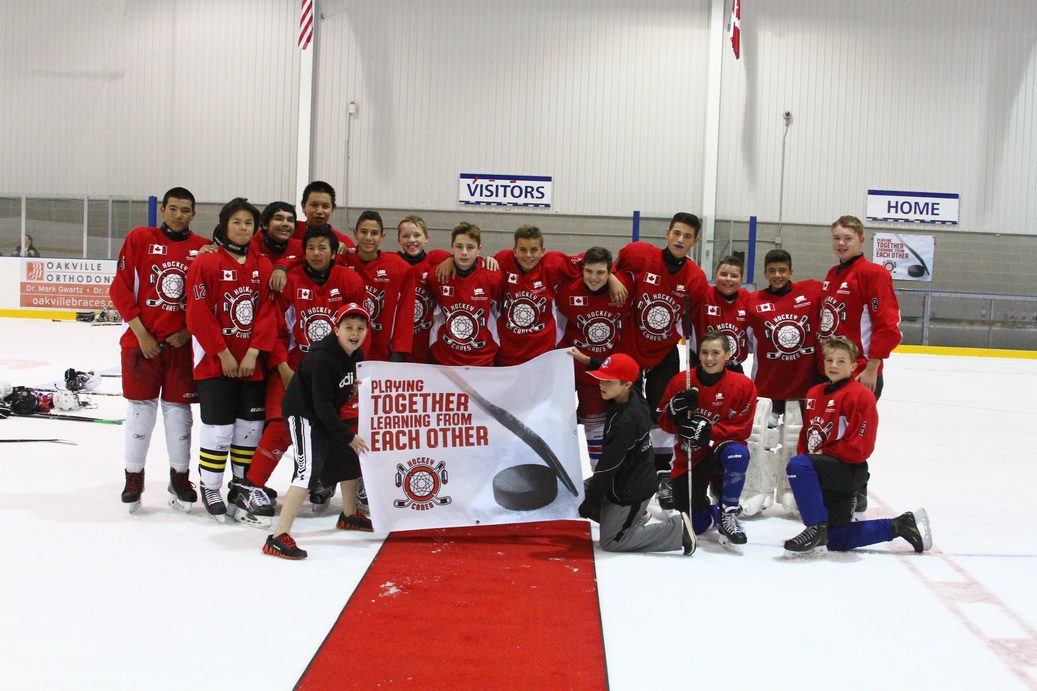
SAMPLE ITINERARY
DAY 1 AND 7 – Travel
DAY 2 – Walking tour of Gastown in Vancouver, Soccer practice
DAY 3 – Tour of UBC, Visit Museum of Anthropology
DAY 4 – Walking tour of Granville Island
DAY 5 – Rent bikes and tour Stanley Park, BC Royal Museum, Hike in the Deep Cove area
DAY 6 – Visit the Burrard Inlet and Rocky Point area, Soccer game
MUSIC EXCHANGE
SUMMARY
Experiences Canada’s music exchange unites students from diverse regions, through collaborative musical performances and enriching activities. This transformative program cultivates an appreciation for Canada’s rich heritage and forges enduring friendships among participants. With virtual platforms sustaining connections beyond travel, students carry treasured memories of a musical journey that transcends traditional learning.
SAMPLE ITINERARY – Calgary AB
DAY 1 AND 7- TRAVEL
DAY 2 – Calgary Arts Commons, Ironwood Stage and Grill
DAY 3 – Scotiabank Saddledome and Stampede Grounds
DAY 4 – Calgary Tower, Walking tour of downtown Calgary, Choir Concert at host school
DAY 5 – Banff and Lake Louise, Singing by the Lake
DAY 6 – Calgary Zoo
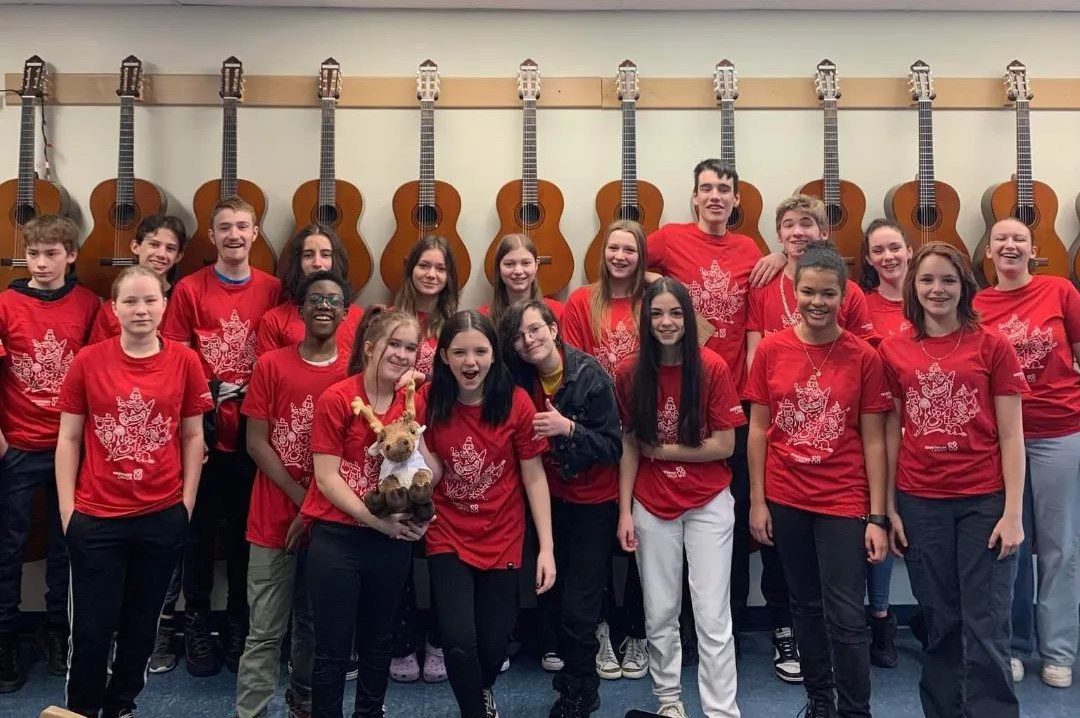
INDIGENOUS COMMUNITY EXCHANGE
SUMMARY
Experiences Canada funds youth exchanges between Indigenous and non-Indigenous communities as well as Indigenous groups to other Indigenous groups. These culturally enriching exchanges provide youth with an opportunity to share their culture, language and traditions while enhancing their pride and respect for their community.
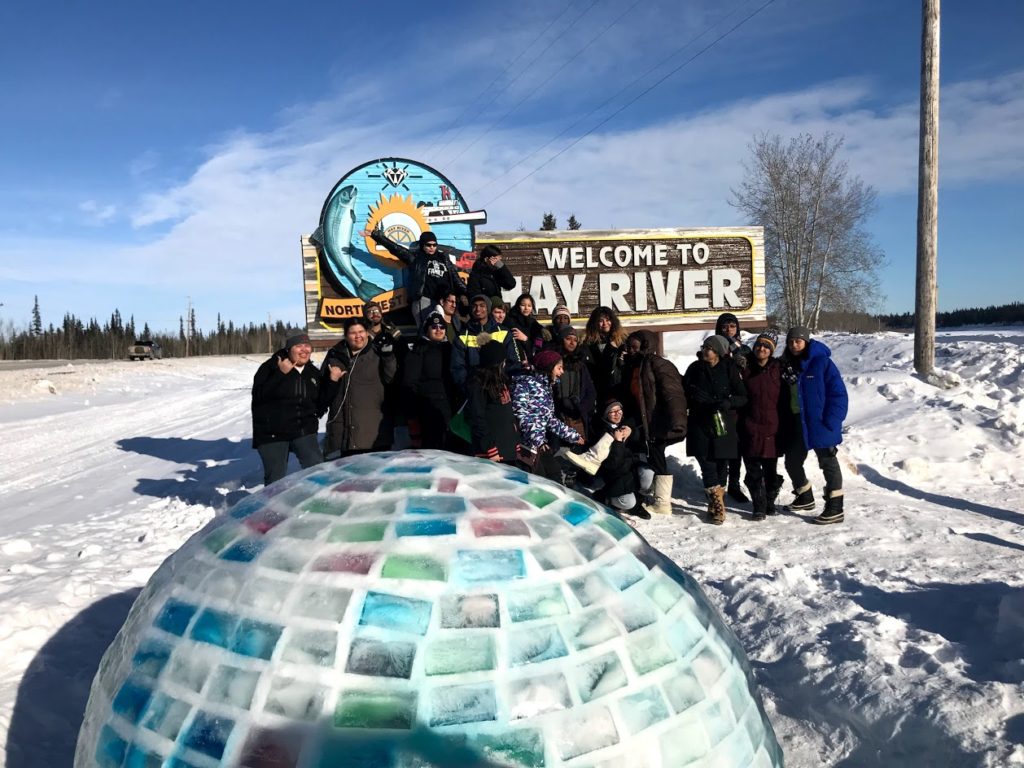
SAMPLE ITINERARY
B.C.
Day 1 & 7 • Travel days, some include welcome potlucks
Day 2 • Hike the Burnt Bridge Loop Trail
Day 3 • Hot Springs
Day 4 • Language and Traditional Food Workshop
Day 5 • Petroglyphs and Waterfall
Day 6 • Potlatch
NORTHWEST TERRITORIES
Day 1 & 7 • Travel days
Day 2 • Dinner and sharing circle
Day 3 • dog sledding • ice fishing • drying fish • checking snars
Day 4 • Beading with Elders • Sliding
Day 5 • Snowshoeing • Youth Outdoor Event • Drum Dance
Day 6 • Trapping camp
NUNAVUT
Day 1 & 7 • Travel days
Day 2 • Walking tour • Visit with local artists
Day 3 • Day on the land-ice fishing arctic char
Day 4 • Traditional Inuit games • cross country skiing • igloo making
Day 5 • Carving demonstration • Hike • Sewing/beading, scraping sealskin
Day 6 • Throat singing and Drum dance
REGIONAL DIVERSITY EXCHANGE
SUMMARY
Experiences Canada’s Regional Diversity Exchange provides an enriching opportunity for youth to delve into Canada’s diverse landscapes, people, and cultures. Participants reflect on their experiences and develop a deeper appreciation for the country’s regional diversity during the exchange.
SAMPLE ITINERARY
DAY 1 & 7 – Travel days, some include welcome potluck.
DAY 2 – Riding Mountain National Park
DAY 3 – Life and Arts Center, Traditional Prairie Meal, Ukrainian Dancers
DAY 4 – Winnipeg Harvest, Manitoba Indigenous and Cultural Education Center
DAY 5 – Human Rights Museum
DAY 6 – Tour of the Mint, Walking tour of the Forks
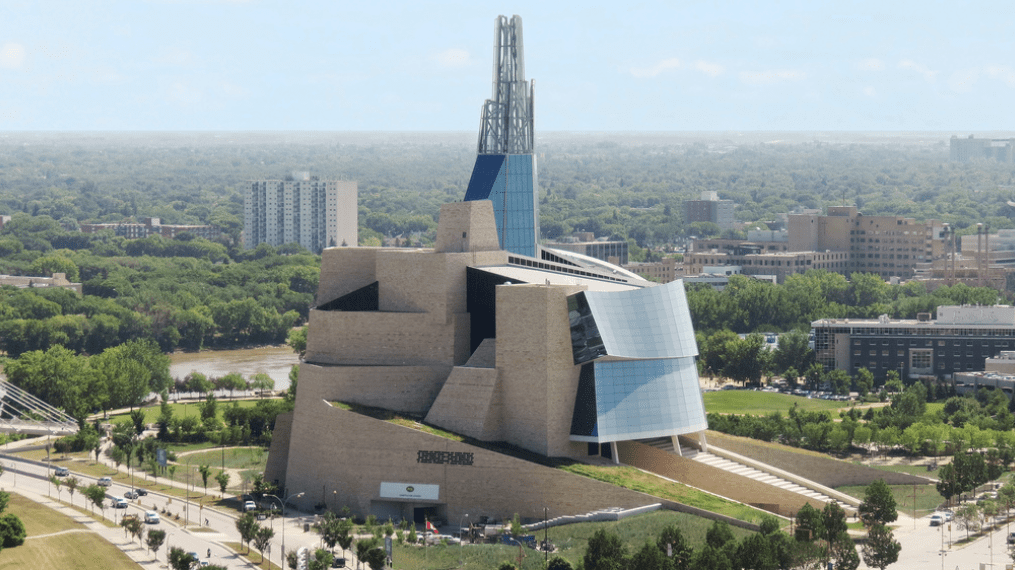
LINGUISTIC EXCHANGE
SUMMARY
Linguistic exchanges provide youth with an opportunity to strengthen their second language by involving them in another community and immersing in the culture. Second-language exchanges make up half of all Experiences Canada youth exchanges. Participants not only gain the confidence to use their second language, but they realize the importance of being skilled in both of Canada’s official languages. Whether your group is learning French or English, Experiences Canada will develop an exchange experience where youth are immersed in their second language.
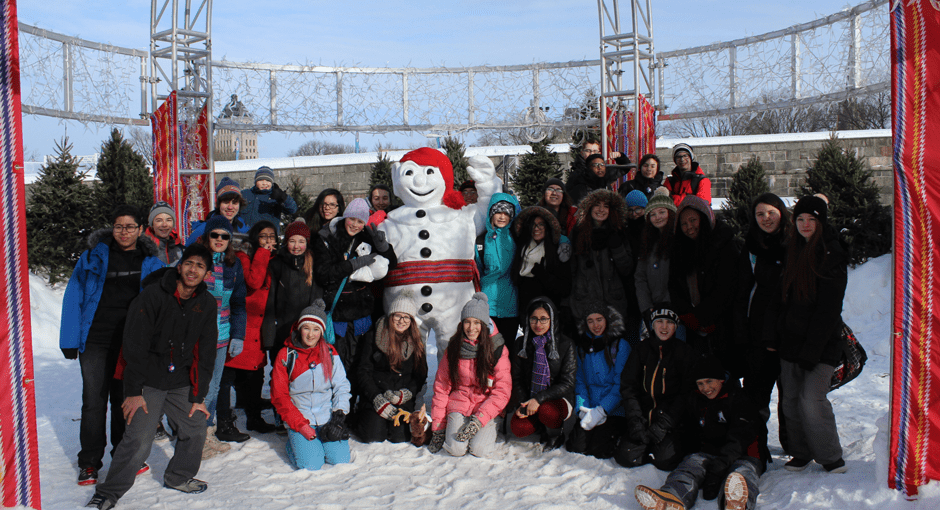
SAMPLE ITINERARY
DAY 1 & 7 – Travel days
DAY 2 – Maison de la Découverte, Terrasse Dufferin, Château Frontenac
DAY 3 – Plains of Abraham, Walking Tour of Quebec City
DAY 4 – Village Valcartier
DAY 5 – Dog Sledding, Sugar Shack visit and meal
DAY 6 – Family Time
HISTORY EXCHANGE
SUMMARY
Experiences Canada offers a transformative journey that takes students beyond textbooks and into the real world, providing an immersive historical experience. Participants have the unique opportunity to explore their surroundings and learn through immersion, gaining a deeper understanding of Canada’s rich heritage.
SAMPLE ITINERARY – HALIFAX NS
DAY 1 & 7 – Travel days
DAY 2 – Harbour Hopper Tour, Board Room Games, Visit Pier 21 Museum
DAY 3 – Boat Rowing, Lunch at waterfront, Maritime Museum
DAY 4 – Fairview Lawn Cemetery-visit graves of those passed away in sinking of the Titanic, Ross Creek Center
DAY 5 – Mik’maw Art Workshop, Visit to Grand Pré
DAY 6 – Peggy’s Cove, Halifax Shopping for souvenirs, Soccer game,
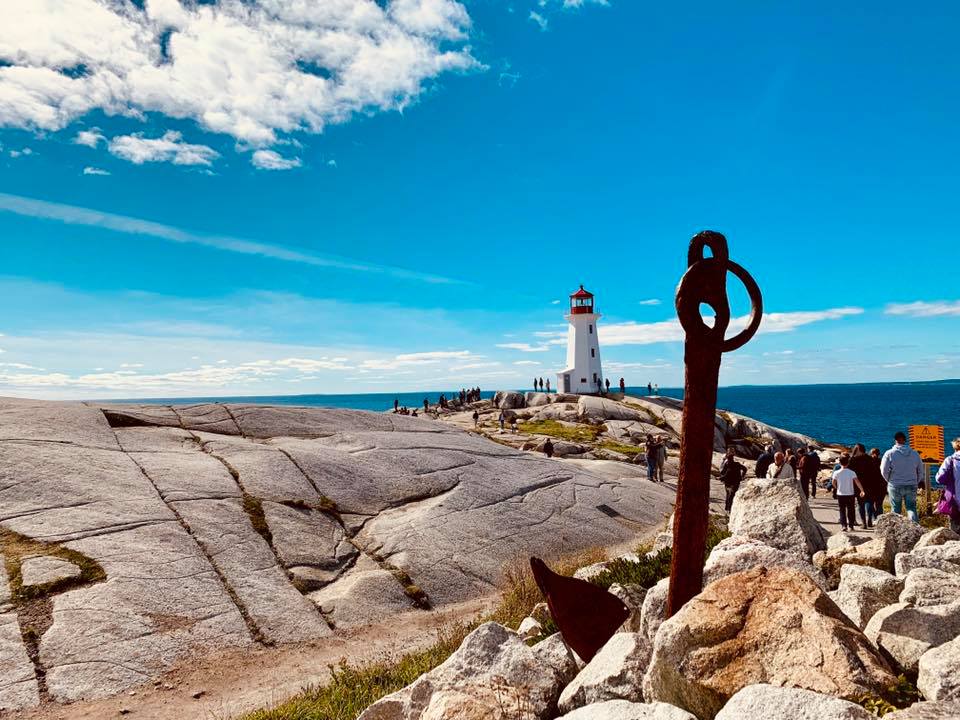
Pre-Exchange Activities
In order for both groups to get to know a little more about each other and the communities they will be visiting, Experiences Canada has developed interactive pre-exchange activities. The objective of these pre-exchange activities is to establish virtual connections between youth and their exchange organizers before they meet in person. The pre-exchange activities are designed to engage young participants through enjoyable and captivating projects, fostering connections within their communities and with their exchange partners’ communities.
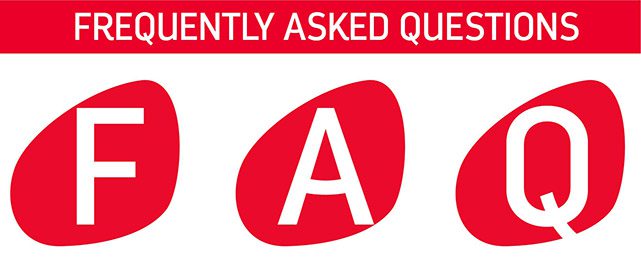
Youth Exchanges – Frequently Asked Questions (FAQ)
If you already know of a group that you would like to exchange with, you can indicate their name and address on your application and encourage them to apply as well. Otherwise, our staff will find a group for you by identifying a group that matches your own group’s...
